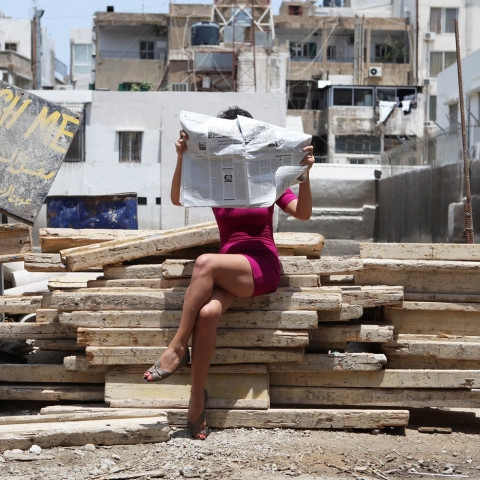Since the beginning of the Arab Uprisings, we have watched and experienced the heights of the revolutionary and creative boom and the lows of war, loss, arrests and oppression both in the streets and on our screens. Scenes of murders have become iconic, activists being shot while filming oppression, ended up filming their own death on their cameras. In public spaces, where people performed revolution, they were oppressed theatrically. Beyond the Arab world, in various cities across the globe, protestors and citizens have been choked by police, tear gassed, shot at and beaten. These scenes have entered our collective memories. Bodies being thrown around, oppressed and forced into disappearance. Scores by our Sons and Brothers propose a repetition of these different dramatic scenes as movement in public space. This would not be a re-enactment of the scenes but rather a performance of the choreography. Performers will attempt to perform in a public space the movement choreographed by state violence. Each score will be stated very clearly who its choreographer is. Passers by have the chance to stop, watch, film, react, or keep walking.
For the research period, I will be choosing each scene and writing its dance score. I will also be producing visuals and collaborating with dance artists.
About the artist

Tania El Khoury is an artist working between London and Beirut. She creates interactive and challenging performances in which the audience is an active collaborator. Tania's solo work has toured internationally, and for which she is the recipient of the Total Theatre Innovation Award and the Arches Brick Award. She is the co-founder of Dictaphone Group, a research and performance collective aiming at reclaiming public space in Lebanon.
